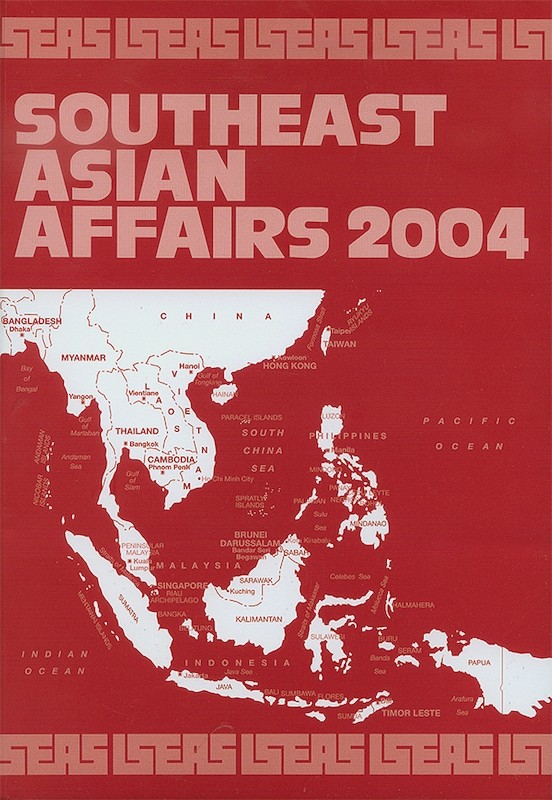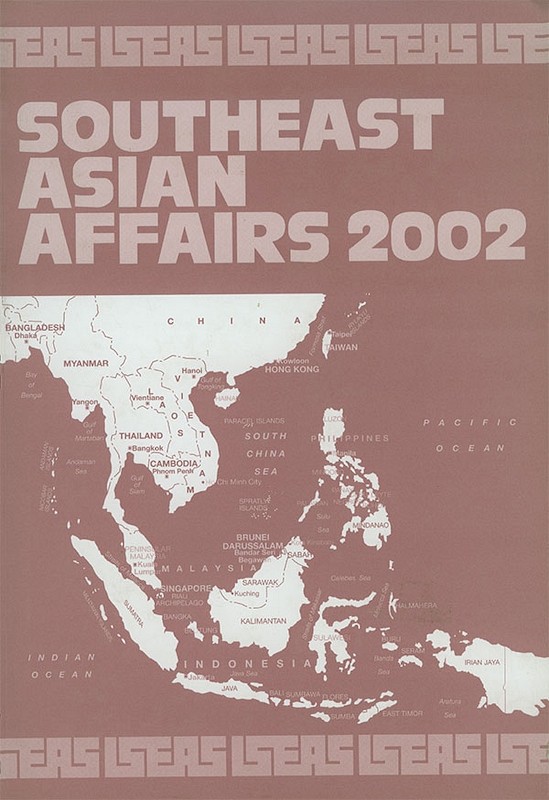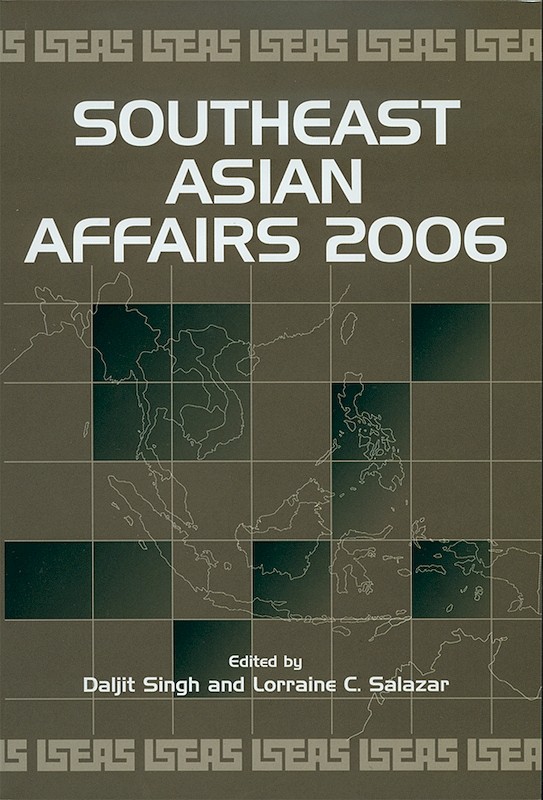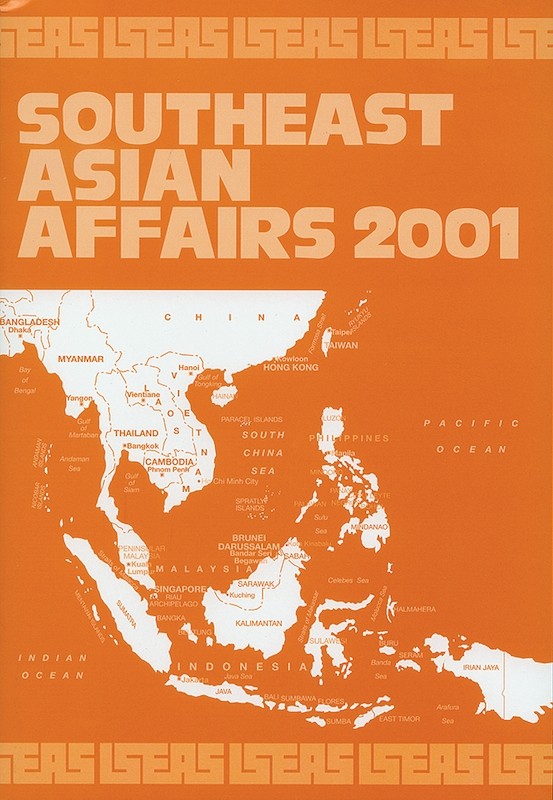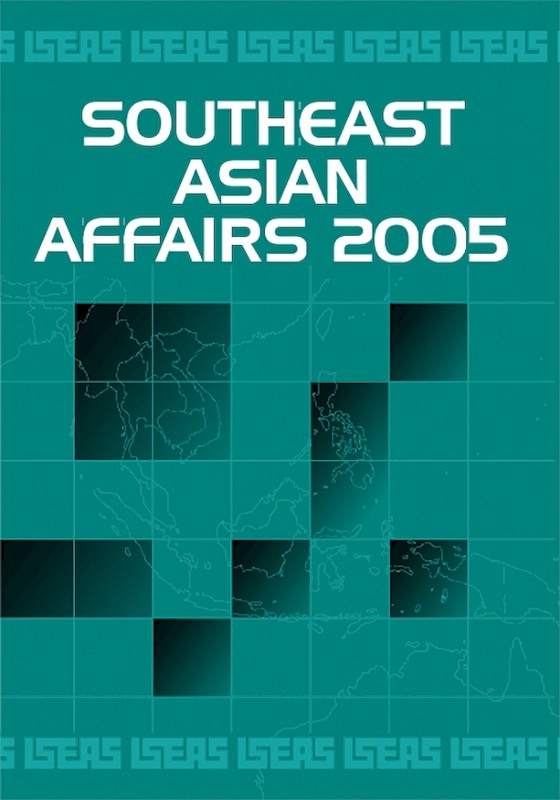Southeast Asian Affairs 2003
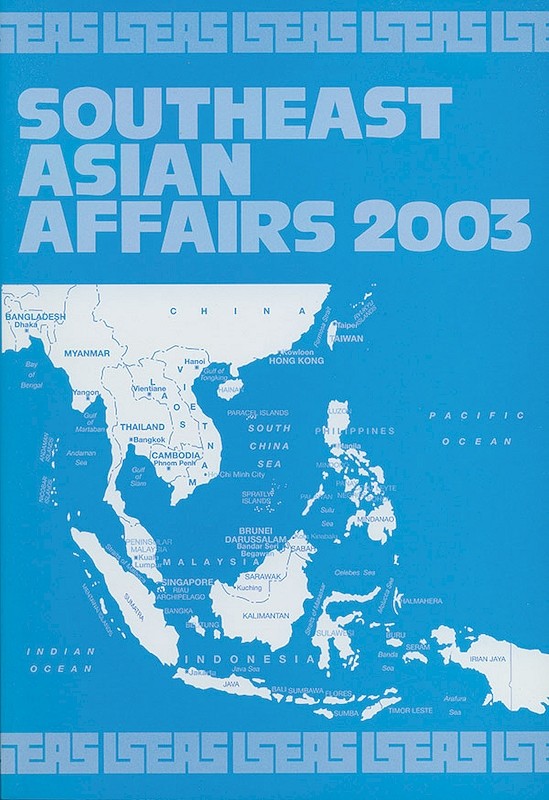
Date of publication:
2003
Number of pages:
338
Code:
SEAA3
About the publication
Southeast Asian Affairs, of which there are now thirty in the series, is an annual review of significant developments and trends in the region. Though the emphasis is on ASEAN countries, developments in the broader Asia-Pacific region are not ignored. Readable and easily understood analyses are offered of major political, economic, social, and strategic developments within Southeast Asia.
The contributions can be divided into two braod categories. There are those which provide an analysis of major developments during 2002 in individual Southeast Asian countries and in the region generally. Then there are the theme articles of a more specialised nature which deal with topical problems of concern.
The volume contains twenty articles dealing with such major themes as international conflict and co-operation, political stability, and economic growth and development.
The contributions can be divided into two braod categories. There are those which provide an analysis of major developments during 2002 in individual Southeast Asian countries and in the region generally. Then there are the theme articles of a more specialised nature which deal with topical problems of concern.
The volume contains twenty articles dealing with such major themes as international conflict and co-operation, political stability, and economic growth and development.
Contents
-
Southeast Asian Affairs 2003
-
Preliminary pages
- THE REGION
-
1. Southeast Asia in 2002: From Bali to Iraq Co-operating for Security, by Chin Kin Wah, author see abstractThe Bali bombings marked a culmination in regional concerns with international terrorism during 2002. Fortuitously external power relations since September 11 were remained stable. Indeed the international terrorism threat saw a convergence of external and intra-regional interests, which facilitated security cooperation. But the range of domestic political interests and the imminence of a US-led war in Iraq complicated regional cooperative efforts. New economic opportunities however took the regional agenda beyond the concern with terrorism.
-
2. Economic Overview of Southeast Asia in 2002, by Tham Siew Yean, author see abstractThe author examines the patchy economic revival of the region in 2002 and compares the economic performance of the new ASEAN members with the more developed but also more exposed regional economies. The impact on the regions economic well-being of the rise of China, bilateral free trade agreements, the Bali bombings and imminence of war in Iraq is also explored.
-
3. India's Relation with Southeast Asia Take a Wing, by Satu P Limaye, author see abstractThe chapter examines the manner and extent to which India's domestic politics and economics, its South Asian neighbourhood relations and its foreign policy generally impinge upon its ties with Southeast Asia. The author concludes with the observation that after a decade of Indias revised relations with Southeast Asia, they can be described as an ongoing recalibration rather than a reincarnation.
-
4. Maritime Piracy in Southeast Asia, by Carolin Liss, author see abstractThis chapter analyses the complex phenomenon of modern day piracy, focusing on Southeast Asia and the South China Sea. It provides an overview of the different kinds of pirate attacks; the various types of pirates operating in the region; the political, social and economic developments that have shaped modern day piracy; and the links between piracy and some of the rebel groups operating in the region.
- BRUNEI DARUSSALAM
-
5. Negara Brunei Darussalam: Socio-Economic Concerns Amid Stability and Plenty, by Hamzah Sulaiman, author see abstractThe main concerns in 2002 continued to be economic growth and diversification, including the related challenge of graduate unemployment. Bruneians generally remained satisfied with their depoliticized welfare state, notwithstanding some social concerns like drug-taking. The year 2002 was an active year for foreign diplomatic and military relations.
- CAMBODIA
-
6. Cambodia: Hun Sen Firmly in Control, by Milton Osborne, author see abstractIn 2002 Hun Sen continued to consolidate his position and marginalize his opponents. He made clear his concern that King Sihanouk, or his successor, should not become an alternative source of authority in Cambodia. The issue of trials of former Khmer Rouge leaders remained unresolved. Other vexing issues included corruption associated with the logging industry, management of the economy, the culture of impunity for the rich and privileged in the application of justice, and the fragility of Cambodian society. Foreign relations were generally untroubled in 2002.
- INDONESIA
-
7. Indonesia in 2002: Megawati's Way, by Anthony L Smith, author see abstractThis review of Indonesia during 2002 analyses the main political developments, constitutional changes, the impact of the Bali bombings, the struggle within Indonesian Islam, regional issues, civil-military relations, corruption, the economy and foreign affairs. The Megawati way is to be instinctively cautious and conservative, which has resulted in frequent media comment that the President has failed to show leadership on the major issues confronting Indonesia.
-
8. Indonesia: The New Regional Autonomy Laws, Two Years Later, by Gary F Bell, author see abstractThe article examines Indonesia's regional autonomy laws, mostly from a jurists point of view. It looks at the provisions of the laws, the political context that led to their adoption, their shortcomings, the many difficult tasks faced during the implementation of the laws over the past two years, and the prospects of amending them. Finally the article examines the special autonomy laws adopted for special regions.
- LAOS
-
9. Laos: Mired in Economic Stagnation?, by Bertil Lintner, author see abstractThe article examines developments in Laos in 2002, covering domestic and social issues, the economy, and foreign policy and the politics of foreign aid. It identifies Laos main problems as too much dependence on foreign aid, lack of openness and transparency, little or no investment outside the power sector, and reluctance to reform and liberalize the economy.
- MALAYSIA
-
10. Malaysia in 2002: Bracing for a Post-Mahathir Future, by Maznah Mohamad, author see abstractThis review of Malaysia for the year looks at the problems of political succession, including the challenges that Deputy Prime Minister Abdullah Badawi will inherit; the issue of economic survival in an age of globalization; the English language policy; the tensions between economic liberalization and protecting the special position of the Malays; intra-party conflicts; cultural divisiveness and Islamization; and international and regional relations.
- MYANMAR
-
11. Myanmar: Reconciliation Progress in the Process?, by David I Steinberg, author see abstractIn his analysis of the reconciliation process, David Steinberg concludes that little enduring progress occurred by the end of 2002. The review also covers the elimination of the power and influence of Ne Win and his family, economic and social conditions, foreign relations, and the war on terrorism.
-
12. Myanmar and China: A Special Relationship?, by Tin Maung Maung Than, author see abstractMyanmars relationship with China has waxed and waned over the past five decades. Yangons present military rulers, ostracized by the West, sought and embraced Chinas friendship in the early years of military rule, resulting in a seemingly endless influx of investments, people, weapons and development assistance. The author argues that the relationship should be seen in a proper context. Descriptions of Myanmar as a client state are simplistic.
- PHILIPPINES
-
13. The Winds of Change in the Philippines: Whither the Strong Republic?, by Mely Caballero-Anthony, author see abstractThis review of the Philippines in 2002 portrays President Gloria Macapagal-Arroyo struggling against almost impossible odds to strengthen the Philippine state. The review includes economic issues, the war on terrorism, peace negotiations with rebel groups, and relations with the United States.
-
14. PhilippineAmerican Security Relations After 11 September: Exploring the Mutuality of Interests in the Fight Against International Terrorism, by Noel M Morada, author see abstractThis chapter considers the nature and dynamics of Philippine-American security relations, which have been rejuvenated since 11 September. However the security interests of the alliance partners are not always mutual. The chapter examines the influence of political and economic factors at the domestic, regional, and international levels that continue to shape the Philippines policy of supporting the U.S. war against international terrorism.
- SINGAPORE
-
15. Crisis, Self-Reflection, and Rebirth in Singapore's National Life Cycle, by Kenneth Paul Tan, author see abstractThe article examines the impact of the terrorist threat on Singaporean society; the remaking of the economy, including the efforts to nurture an innovative and entrepreneurial culture; and the work of the Remaking Singapore Committee.
-
16. Singapore's Troubled Relations with Malaysia: A Singapore Perspective, by Chang Li Lin, author see abstractAmong the issues covered are water, economic competition, Malay Singaporeans, the media as a factor in bilateral relations, and leadership changes. The author concludes that in the medium term there do not appear to be any internal or external catalysts relating to either country that would drastically change the respective predominant paradigms driving each sides approach to bilateral relations.
- THAILAND
-
17. Thailand: Democratic Authoritarianism, by Thitinan Pongsudhirak, author see abstractThis review of Thailand in 2002 examines the Thaksin phenomenon. Coverage includes how Thaksin and his party have established a dominant position in Thai politics, the fortunes of the opposition, the weakening of the anti-graft institutions, Thaksins control of the military and the media, and the state of the economy.
-
18. Some Reflections on the Thai Monarchy, by Sukhumbhand Paribatra, author see abstractM.R. Sukhumbahnd Paribatra wrote this chapter at the special request of the editors. It provides a Thai perspective on the place of the monarchy in Thai society. The author explains why the Chakri dynasty has been regarded as the saviour of the Thai nation and traces its evolution from the eighteenth century, before dwelling on the institution of the monarchy today.
- VIETNAM
-
19. Vietnam: The Stewardship of Nong Duc Manh, by Carlyle A. Thayer, author see abstractCarlyle Thayer reviews the political developments in Vietnam in 2002 with a view towards assessing Nong Duc Manh's stewardship as party leader. Manh has taken determined steps to create an effective leadership team at national level, and to make the state apparatus more efficient and subject to law. The review includes developments in the Party, the National Assembly elections, the Nam Cam scandal, and cyber dissidents.
-
20. SOE Equitization in Vietnam: Experiences, Achievements, and Challenges, by Vu Quoc Ngu, author see abstractThe author reviews reforms of state-owned enterprises (SOEs), especially the equitization process, and draws attention to the many obstacles that remain in the ownership divestiture process. He also stresses the importance of subjecting SOEs that will not be equitized to a sound corporate governance regime.

